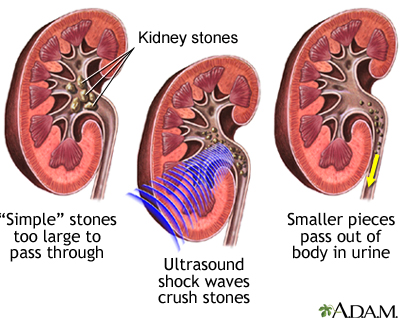Kidney Stones vs UTI: Just How to Determine and Deal With Each Condition Efficiently
Kidney Stones vs UTI: Just How to Determine and Deal With Each Condition Efficiently
Blog Article
Understanding the Key Differences In Between Kidney Stones and Urinary System System Infections: An Extensive Review for Clients
Recognizing the differences between kidney stones and urinary tract infections (UTIs) is crucial for individuals who may be experiencing similar signs and symptoms yet face vastly various health obstacles. While both conditions can show up pain in the reduced abdomen or back, their underlying causes, diagnostic methods, and treatment procedures split substantially. A nuanced comprehension of these differences not just help in precise self-assessment however likewise notifies conversations with health care companies. As we check out these essential facets, it becomes clear that acknowledging the unique attributes of each problem can exceptionally impact client results. What may be the very best approach to resolving these distinctions?
Introduction of Kidney Stones
The formation of kidney stones, a frequently debilitating and excruciating condition, underscores the important importance of keeping renal health and wellness. The primary types of kidney stones consist of calcium oxalate, calcium phosphate, uric acid, struvite, and cystine stones, each with unique causes and danger factors.
A number of elements contribute to the formation of kidney stones. Additionally, metabolic problems and certain clinical conditions might predispose individuals to stone formation.
Symptoms of kidney stones can consist of severe flank hematuria, pain, and nausea, which typically prompt urgent medical examination. Therapy options differ, ranging from raised liquid consumption and dietary modifications to clinical interventions such as lithotripsy or surgical elimination, depending on the dimension and area of the stones. Comprehending these facets is crucial for reliable avoidance and management.
Review of Urinary System Tract Infections
Urinary system infections (UTIs) represent an usual yet substantial health worry, impacting countless individuals annually. These infections take place when microorganisms get in the urinary system, that includes the kidneys, ureters, bladder, and urethra. The bulk of UTIs are triggered by Escherichia coli, a kind of germs normally discovered in the gastrointestinal system. While UTIs can affect anyone, they are specifically widespread in ladies because of anatomical distinctions that help with bacterial access.
The danger elements for creating a UTI consist of sexual activity, specific kinds of birth control, urinary system retention, and a history of previous infections. Straightforward UTIs are usually limited to the bladder and are a lot more common in healthy individuals, while difficult UTIs might involve the kidneys and happen in those with underlying wellness concerns.
Prompt diagnosis and therapy are vital to protect against complications, such as recurring infections or kidney damage (Kidney Stones vs UTI). Generally, UTIs are treated with anti-biotics, and preventative measures can be employed for those with constant incidents
Usual Signs And Symptoms Contrast
Symptoms of urinary tract infections and kidney stones can usually overlap, leading to confusion in medical diagnosis. In comparison, kidney stones have a tendency to create serious, sharp discomfort that radiates from the back to the lower abdomen and groin, often defined as colicky discomfort.
In addition, UTIs might be accompanied by fever and cools, specifically in more serious cases, while kidney stones can result in queasiness and throwing up because of intense pain. Both conditions can cause blood in the pee (hematuria), yet the existence of blood is extra commonly linked with kidney stones. While discomfort throughout peeing is a trademark of UTIs, kidney stones typically offer with even more intense discomfort episodes, which may come and go. Recognizing these signs and symptom distinctions can help clients in recognizing their problem, although clinical evaluation stays crucial for exact diagnosis and therapy.
Diagnosis Techniques
Just how can healthcare experts precisely differentiate between kidney stones and urinary system infections? The analysis procedure starts with a thorough medical history and a detailed evaluation of the patient's symptoms. Clinicians commonly execute a physical evaluation, which may expose tenderness in the abdomen or flank region, guiding the diagnostic path.
Lab examinations play a vital function in comparing these two conditions. Kidney Stones vs UTI. A urinalysis can determine the existence of blood, crystals, or germs, which are indicative of either problem. In cases of urinary system infections, the urinalysis might show a considerable presence of leukocyte and nitrites, while kidney stones may provide with particular crystals
Imaging researches, such as stomach ultrasound or computed tomography (CT) checks, are important for picturing kidney stones. These imaging methods make it possible for doctor to examine stone dimension, location, and possible blockages in the urinary system system. In comparison, urinary system infections typically do not call for imaging unless complications are thought.
With each other, these diagnostic approaches encourage health care experts to precisely differentiate and identify between kidney stones and urinary system infections, guaranteeing that individuals receive ideal care and monitoring.
Treatment Choices and Avoidance
While both kidney stones and look at more info urinary system tract Visit Your URL infections (UTIs) require timely therapy, their management approaches differ substantially.
The therapy for kidney stones commonly entails pain administration, hydration, and in many cases, clinical treatments such as extracorporeal shock wave lithotripsy (ESWL) or ureteroscopy to eliminate or damage down stones. Clients are regularly recommended to boost fluid consumption to facilitate stone flow and decrease recurrence. Dietary alterations might likewise be necessary, depending upon the stone type.
In comparison, UTIs are largely treated with anti-biotics to eliminate the bacterial infection. The details antibiotic recommended relies on the bacteria determined and regional resistance patterns. Extra measures, such as boosted fluid intake and urinary analgesics, might help minimize signs.
Prevention approaches differ too; for kidney stones, maintaining ample hydration and adhering to nutritional limitations can be reliable. For UTIs, preventive strategies include correct health methods, urinating after sexual intercourse, and possibly prophylactic prescription antibiotics for recurring infections. Recognizing these treatment and prevention methods is important for effective administration and to reduce the risk of complications related see this page to both problems.
Final Thought

Understanding the distinctions in between kidney stones and urinary system system infections (UTIs) is essential for individuals who may be experiencing comparable signs and symptoms yet deal with vastly various wellness challenges. The main types of kidney stones consist of calcium oxalate, calcium phosphate, uric acid, struvite, and cystine stones, each with unique reasons and threat aspects.

Report this page